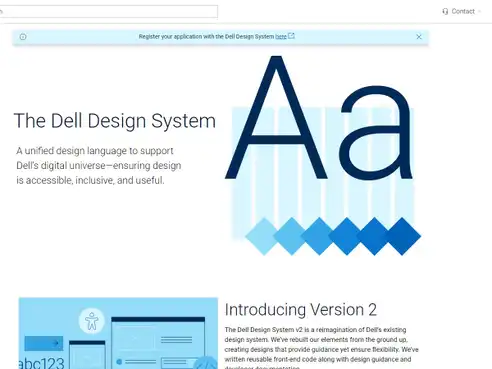Do I need a web designer?
Businesses that rely on the website to generate revenue might need to work with web designers. This might be on a freelance basis, with an agency, or even in-house. But when do you actually decide that you should stop using page builders?
Written by Tomasz LisieckiBusinesses are asking more and more of their marketing teams. The pace is constantly increasing, and marketers need tools that can get the job done quickly. This is where page builders can come in… but they’re not a one-size-fits-all solution. We’ll explore the benefits and disadvantages of different web design options shortly, but first, here’s a rundown of what to do depending on your business goals.
Summary: who needs a web designer?
Before diving deeper, here’s a quick summary of the topic.
Personal websites and blogs rarely need professionals to design & maintain their websites. Especially if you’re just starting out, doing it yourself with page builders is enough. And for those who don’t feel comfortable with it, you can find freelancers who set up page builders using slightly customised templates. It also doesn’t cost much, so that’s a plus.
Small businesses can often get by without working with an agency. This will depend on the type and value of your website. Answer just one question: what would happen to your bottom line if the website didn’t exist tomorrow? Based on that, you’ll get a feel on how much you should invest in it. You can opt for the help of freelancers if your budget is tight. With a skilled marketer in-house, the DIY page builder angle is still an option, but be very careful with that.
When the website is high-value, you generally need web design help from an agency. There are exceptions, though. Building a landing page might not always require professional help. It all depends on the type of campaign and, you guessed it, the value.
In this scenario, the website as a whole will require a ton of conversion rate optimisation (CRO). Building the right funnels, tweaking the user journey and creating a good user experience will be the key to get the most out of your investment.
Spinning up landing pages in-house is entirely possible these days with CRMs like WordPress. This requires the foundation of your site to be done by professionals, which only elevates the value of that initial investment.
Web applications, even the more basic ones, will require help from a web agency or a software house. You’ll need professional developers to build bespoke features or modifying the functionality of an existing page builder. And like with the high-value websites, you will need to optimise for conversions and create good UX here as well.
Building a website without a designer
Page builders eliminate the communication and delivery time sink of working with agencies. In the end, even the most agile web agency would need a couple of days to build a high-performing landing page.
For SMEs, there’s the added benefit of low cost. In some cases, you can even put up a PPC landing page for free. But if you have some budget, then you can afford pretty much any tool that will do the job.
It all looks promising so far, so what are the tradeoffs? There are a few, but they don’t disqualify page builders by any means. Usually, there are options to reduce their negative impact – or even discard the disadvantages entirely.
Sacrificing on the quality
The pages will convert at a lower rate than a professional landing page. This will heavily depend on your knowledge of the page builder, and any additional skills your team has. If you know the basics of web development, you can customise most website builders. Similarly, any web design skills will help you avoid the common mistakes of building landing page layouts.
The end result will depend on many variables, but there’s also a redeeming factor – it doesn’t mean your ROI will be worse. Considering the speed at which you can create a landing page for a short campaign, and the low cost, you might be fine with a lower conversion rate. Just weigh your options carefully.
Diluting your brand image
Website builders are for everyone. It’s a blessing in disguise. It means that without some knowledge of web development to customise them, you are likely to be “just another page builder company”. First impressions are crucial, and while unified web design makes people’s lives a little easier at times, it also makes your brand lost in the crowd.
If you’ve ever encountered dropshipping e-commerce websites, you will know what it means. You know right away what they are. You know the pros, and cons. If your landing page looks similar, even by chance, people could automatically assign undesirable qualities to your company.
You’re not in control
It might sound vague and counterintuitive at first, but here’s why you’re not in control. You’ve opted for a one-size-fits-all solution. This means that you will have a big choice of features, but this comes with two issues:
- You won’t need all of the elements available to you
- You might not find an element that you actually need
Most website builders evolved to a point where the first one is a non-issue from a technical standpoint. However, it might be a little overwhelming. As for the second aspect, it’s pretty self-explanatory. Page builders are great, and they offer a lot of value for the money – but they’re not built specifically for you.
Additionally, you will quickly find that most times you don’t actually own your page. It can be taken down at any time, and you may not have any rights to it. Once it’s gone, you can’t recover it, and many builders make it hard to migrate their pages to a custom website. After all, that’s not what makes them money.
When do you need a web designer?
The answer is: it depends. Some of the factors to consider are:
- Your budget
- The ROI target
- The timeline
- The technical requirements
Whether you work with an agency or have an in-house development team, sometimes the project will not be a good fit for them. As a small company or a small team in an enterprise, it might be better to use no-code solutions for some of your projects. But the key here is to recognise when it’s the right option.
But in the grand scheme of things, you will need to work with web agencies at some point. Web designers do much more than just convert a wireframe or a prototype into a graphic. They dictate features, which often influence the technologies needed to use.
Professional web designers build design systems – you may not be aware of that, but a proper design system can be effectively reused in many other applications, not just on the website. You can even take advantage of it in your offline marketing efforts.
Freelance web design vs. web agencies
Getting freelance web design help is an attractive option regardless of the budget. A single point of contact is a convenient feature of such engagements. They have flexible schedules, which works for irregular volume of web design work that many businesses face.
While freelancers are generally specialists, it’s a bit more tricky in web design. Full-stack web development, which relates to building both the visual and logical layer of websites, might be an expensive option. On top of that, the person needs decent web design skills. While it’s entirely possible to “have it all”, you can see that this quickly turns from the specialist freelancer to a more generalist person.
This is not a disadvantage per se, it might be a deal-breaker for your business. There’s a reason why agencies hire SEO experts, user experience designers, web developers and conversion rate specialists. All of these niches require a separate skill set and finding an all-in-one freelancer for them will yield proportionally worse results.
Even though flexibility is a huge plus of freelancers, delivery times may not be – especially when such a generalist skill set is required. They will work in a waterfall process, where each task can only start when the previous one is completed. Projects that could take just a few weeks can stretch to months, especially if you’re not the only client for that person. It’s only an issue for time-sensitive work, but if you’ve been in business long enough you’ll know that every email is “urgent” and we need everything for “yesterday”. 😉
Taking web design in-house
Finally, an option we didn’t cover much is doing web design (and development) in-house. The barrier of entry here is really high because you need to have a development team on payroll. This is generally reserved to companies that build and sell software.
But it doesn’t mean it’s a viable option for marketing teams. The biggest issue that all of our SaaS clients have faced so far is the internal tug of war. Let’s face it – your app is your product. The website will be lower down the priority list and you’ll often have to chase for the work to be completed, or it might get denied when you need it the most because there’s a critical bug in the app that needs 100% of the team’s focus.
That creates a lot of inefficiencies, stress, and potential for internal conflict. Most of the time, it’s a recipe for disaster. Individual teams at massive tech enterprises frequently outsource work to agencies for that reason. Not to mention that their engineers might know the programming languages needed to do the work, but they won’t know the ins and outs of web development. Things might slip by them, ranging from small “quality of life” issues to bigger accessibility and usability problems.
And for the last nail in the coffin, your software developers are likely to be more expensive than a web agency. They are usually more specialised and in-demand, so it’s often a poor use of internal resources to have them implement relatively trivial website features.
Originally published May 29, 2023 10:15:52 AM, updated May 6 2025.



